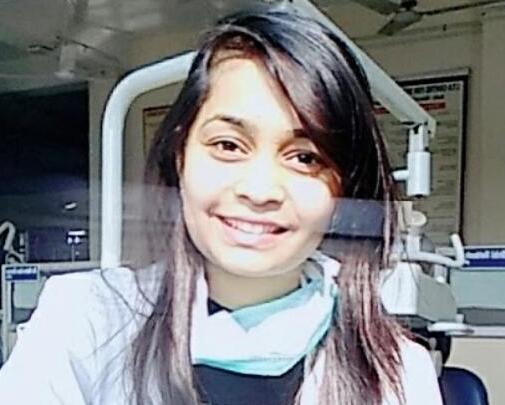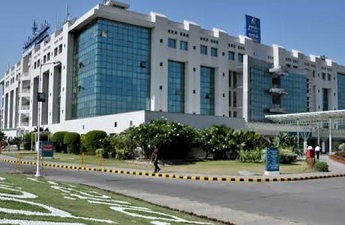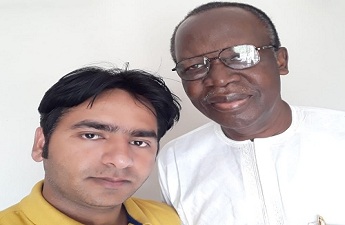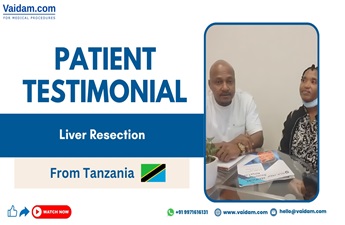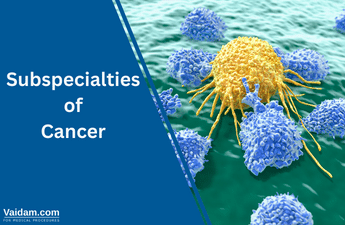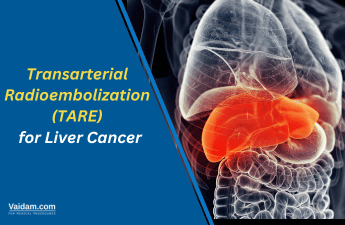What Is Prostate Cancer?
Prostate cancer develops when cells in the prostate start to grow in an uncontrolled way. It often grows slowly to start with and may never cause any problems. It is one of the most common cancers occurring in men, which can be treated successfully.
Overview of prostate gland 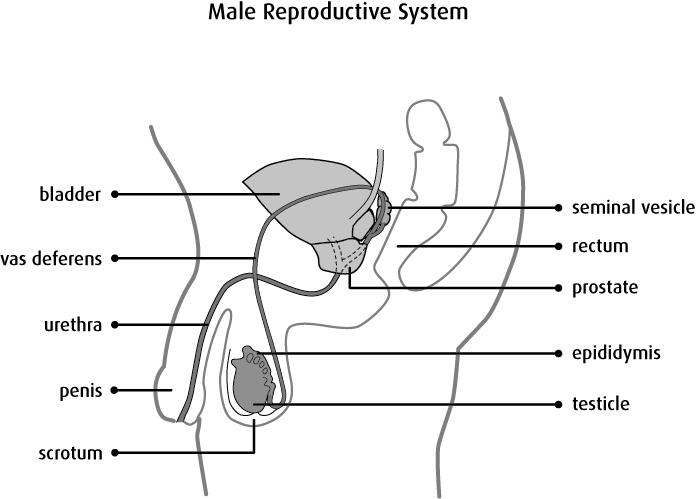
Get in Touch with Medical Experts
Prostate gland is a small walnut shaped exocrine gland of the male reproductive system. It lies just below the bladder in front of the rectum. This gland has thousands of tiny glands which produces a fluid that makes the seminal fluid. This fluid which nourishes and protects the sperm. A normal prostate weighs between 20-30 grams.
Prostate Cancer Risk Factors
There are many conditions that may lead to prostate cancer, some of them are as follows:
-
Age-The older you are more likely to get affected by prostate cancer.
-
Race-African American are more likely to get affected as compared to Caucasians.
-
Family history/genetics
-
Obesity
Prostate Cancer Symptoms
Early cases of prostate cancer does not show any symptoms and signs, it is usually diagnosed in a later stage. The symptoms and signs include:-
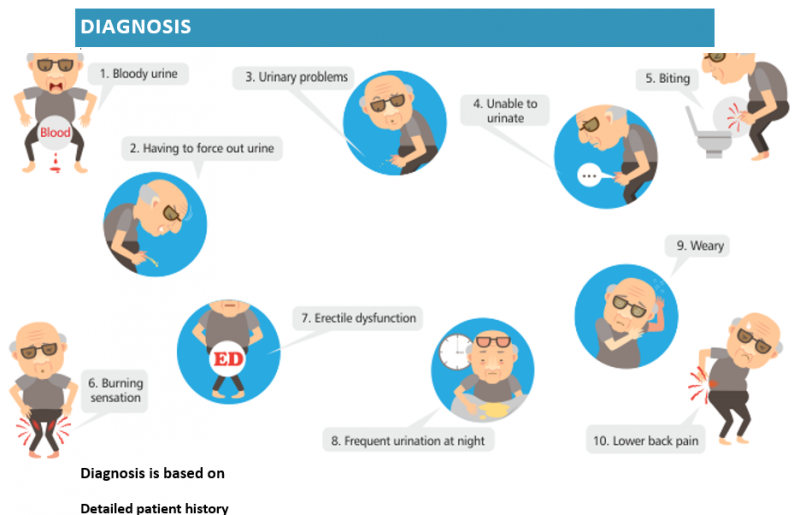
Prostate Cancer Treatment in India
Cancer of any kind is dangerous and fatal whose treatment too requires a lot of money. But in India, one gets a complete and proper treatment at a very affordable cost. India houses several eminent oncology hospitals and doctors that are at par with the international standards of medical excellence.
The hospitals have advanced infrastructure, latest medical equipments and enough room to accommodate over a 100 patients. With more than one modular infection-free operation theatres, ICUs, state-of-the-art laboratories and Cath labs, the Best cancer hospitals in India provide their patients with expert oncologists who with proper diagnosis gives the patient his most befitting treatment options and aims to deliver a speedy recovery. Complete your search with the best cancer doctors in India as well.
Cost of Prostate Cancer Treatment in India
The cost of prostate cancer treatment in India is much more affordable than in other countries:
- The prostate cancer surgery cost in India is USD 4,900.
- The cost of chemotherapy is USD 1,500.
- The cost PET Scan is USD 500
DIAGNOSIS
Diagnosis is based on Detailed patient history
This includes signs, symptoms and any associated risk factors
Physical examination
It includes complete urogenital examination along with examination of other systems.
Investigations
-
PSA blood( prostate-specific antigen) test
-
Transrectal Ultrasound(TRUS)
-
Prostate biopsy
Imaging tests
Will help in determining the spread of the cancer, these include
-
Bone scan
-
Ultrasound
-
Computed tomography
-
Magnetic resonance imaging
-
Positron emission tomography
STAGING

Staging (extend) of a prostate cancer is very important factor in choosing the treatment option & predicting a man’s survival rate:
-
Prostate biopsy results (including the Gleason score)
-
Blood PSA level at the time of diagnosis
-
Results of any other exams or tests that were done to find out how far the cancer has spread

This will help in deciding the treatment plan
TNM (Tumor, LYMPH nodes, METASTASIZED) staging system
This is the most preferred staging system. The TNM system for prostate cancer is based on 5 main factors:
Staging Category:
Clinical stage: This stage will help in determining the extent of the disease, based on the results of the physical exam (including DRE), lab tests, prostate biopsy, and any other imaging tests patient had undergone.
Pathological stage: This stage can be determined by the surgical procedure & the above test .Pathologic staging is likely to be more accurate than clinical staging, as it gives the doctor a direct impression of the extent of the disease.
GLEASON SCORE
The Gleason Scoring System is the most common scoring system for prostate cancer .This scoring is done by the pathologist after examining under the cancerous tissue which is obtained from needle biopsy. Higher the score the more aggressive the tumor.
Prostate Cancer Treatment Procedure
The treatment options & prognosis of cancer will depend on:
-
Stage of the cancer (level of PSA, Gleason score, grade of the tumor, how much of the prostate is affected by the cancer, and whether the cancer has spread to other places in the body)
-
Patient’s age
-
Whether the cancer has just been diagnosed or has recurred (come back)
-
Patient has any other health problems
-
Expected side effects of treatment
-
Past treatment for prostate cancer
-
The wishes of the patient.
Early stage prostate cancer
Cancer which are small and are localized are managed by the following methods-
-
Watchful waiting :the treatment is not immediately carried out .PSA blood levels is also monitored
-
Radical prostatectomy: The prostate is surgically removed from the body.
-
Chemotherapy :it is the use of drugs to kill cancer cells
-
Trans urethral resection prostate
-
Brachytherapy :radioactive seeds are implanted inside the prostate gland in this procedure
-
Conformal radiotherapy: This procedure is useful as it minimizes healthy tissue exposure. In this procedure the radiation beam is overlapped to destroy the cancerous cells.
-
Intensity modulated radiotherapy: Radiations with different intensity are used for this procedure. This is an advanced form of conformal radiotherapy which uses computer-controlled linear accelerator.
Advanced stage prostate cancer
These are cancer which is very aggressive and are in advance stages. They are treated by one of the following methods
-
Combination of radiotherapy and hormonal therapy
-
Radical surgery
-
Robotic keyhole surgery – Most ideal for elderly patients
-
Radioactive injections – Radium-233 is injected in the target area, this causes minimal damage to the skin.
-
Estrogen patches – this is a new method to treat prostate cancer which is administered via skin.
-
Use of Xtandi - this is a new method which is developed in 2012 and approved by FDA
Complications of Prostate Cancer
-
Metastasis- If it spreads to other parts as well as bone which may cause pain and fracture.
-
Urinary incontinence
-
Erectile dysfunction
Prostate Cancer Prevention
There is no proven prostate cancer prevention strategy, but we may reduce the risk of prostate cancer by making healthy choices like:
-
Choose a healthy diet
-
Low fat diet
-
Eat more fat from plants rather than animals
-
Increase the amount of fruits and vegetables
-
Maintain a healthy weight
Prostate Cancer Prognosis
Survival rate indicates the percentage of patients who live a specific number of years after being diagnosed with the cancer.
-
In prostate cancer, 10-year survival rate is approximately 93% and the 15-year survival rate is approximately 77%.s
-
It has been seen, that men who have been diagnosed with low-grade prostate cancers have a minimal risk of dying from prostate cancer up to 20 years after diagnosis.
-
Whereas, men diagnosed with more severe forms of prostate cancer have a higher risk of dying within 10 years.
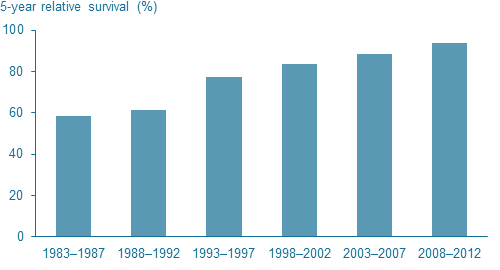
Prostate Cancer Facts
- After skin cancer, prostate cancer is the most common cancer among men.
-
Prostate cancer mostly has no early signs& symptoms
-
Advanced prostate cancer can cause men to urinate more often or have a weaker flow of urine.
-
Prostate cancer mainly occurs in older men, above 65 years of age.
-
African-Americans have the highest rate of prostate cancer in the world.
-
Use robotics in surgery is commonly used for removing a malignant prostate cancer from the pelvis.
-
Prostate cancer is a comparatively slow-growing cancer.


